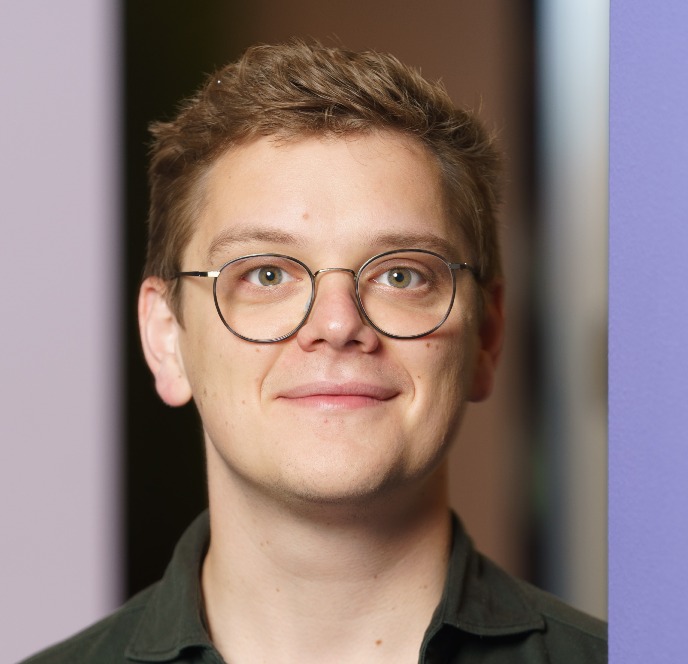From Groningen to the World Bank headquarters in Washington D.C.

In his research at FEB, Hagen Kruse focused on topics of macroeconomic development. Part of his PhD research, on structural change in developing countries, is already mentioned in a report of the World Bank and another of his projects serves as background to a forthcoming World Bank report. Now, on the brink of obtaining his PhD, Hagen has started a job as an economist at the World Bank head-quarters in Washington, D.C.
Can you tell us a little bit about yourself?
“I was a PhD candidate at the University of Groningen. Before starting my PhD in 2020, I completed a Research Master in Economics and a Master in Economic Development and Globalization at the Faculty of Economics and Business. My personal curiosity for research on developing countries originates from pre-academic work in Southern Kenya, supervised by the German Ministry of Economic Cooperation and Development.”
What was the focus of your PhD research?
“My research focuses on structural change in developing countries, with particular interest in Asia and Sub-Saharan Africa. An important debate in this field is whether industrialization has become more diffcult for developing countries today. This is relevant because industrialization has been a key feature of inclusive and sustained development for centuries. However, these debates are constrained by the limited availability of good data, while researchers as well as policymakers rely on good data to identify the best possible policies. My PhD research contributes to the gigantic data effort by the Groningen Growth and Development Centre (GGDC). For instance, we constructed the Economic Transformation Database (ETD), which provides new evidence on sectoral employment and output for a large set of low- and middle-income countries. In my first journal publication in the IMF Economic Review, we find a reversal of previous deindustrialization trends across the Sub-Saharan African countries covered in the ETD, a so-called “manufacturing renaissance”.
“In other projects, we propose a new conceptualization of structural change in internationally fragmented production. The traditional approach to measure specialization in trade is based on the product composition of countries’ gross export flows. The shortcomings of this approach became increasingly apparent as international production fragmentation progressed. In times of global value chains, goods are produced by workers in different countries, sectors, and occupations. Using new data and measures, we characterize specific activities performed by low- and high-income countries. We found that low-income countries predominantly specialize in production activities, such as assembly work, while high-income countries specialize in non-production activities, such as engineering or management. These findings enable us to single out potential diversification paths for developing countries. The shifts across occupations imply that the traditional focus on sectors no longer reflects an important part of modern structural change. Our research shows that not only “what you export matters”, but what you do in exports matters. This means that policy decisions that take into account activities in exports might be more effective.”
What does your role at the World Bank entail?
“Since July, I work as an Economist for the World Bank Chief Economist of the South Asia Region in Washington, D.C. In this position, I contribute to research on topics relevant to policymakers in these countries. A large part of this research is communicated through a semi-annual regional flagship report, the South Asia Development Update. The South Asia region comprises eight countries: Afghanistan, Bangladesh, Bhutan, India, Maldives, Nepal, Pakistan, and Sri Lanka. This region has recently experienced very strong economic growth, but is still home to about a third of the world’s poor. I am glad to be able contribute to the World Bank's mission to help countries fight this poverty.”

How are your Masters and PhD studies at FEB connected to the research that is done at the World Bank?
“Joining the World Bank in such a position after completing my PhD has been my main professional target for many years. My first Master at FEB, on ‘Economic Development and Globalization’, focused on topics of macroeconomic development, which are the basis of my PhD research and very relevant for my work at the World Bank. One of my PhD projects was mentioned in the World Bank “East Asia and the Pacifi c Economic Update”. Another project served as a background paper to the forthcoming World Bank report “Leveraging trade for more and better job opportunities in developing countries”. For this report, my GGDC-colleagues and I accumulated new data for low-income countries in Sub-Saharan Africa, Asia, and Latin America. The associated data has been made publicly available and is already used to derive policy insights on job creation from trade. My work on this report also included a research stay at the World Bank headquarters in Washington, D.C. After all this, it feels almost natural to now work for the World Bank.”
What are you looking forward to investigating as an economist at the World Bank? “One recent topic that is very relevant for countries in the South Asia region is geopolitical fragmentation. What are the region’s chances and risks in the reshuffling of global value chains? Can countries like India or Bangladesh benefit from rich countries’ efforts to diversify their international production networks? One of the great features of my new position at the World Bank is that there is a close link between policymakers’ concerns and the topics we research. This not only allows us to learn many interesting things about these countries, but also guarantees a high potential impact in the economic development of South Asia.”

